Generally, Individuals with good oral health and sufficient bone density in their jaw are good candidates for dental implants. However, each case is unique, so it's best to consult with a dentist or oral surgeon to determine eligibility.
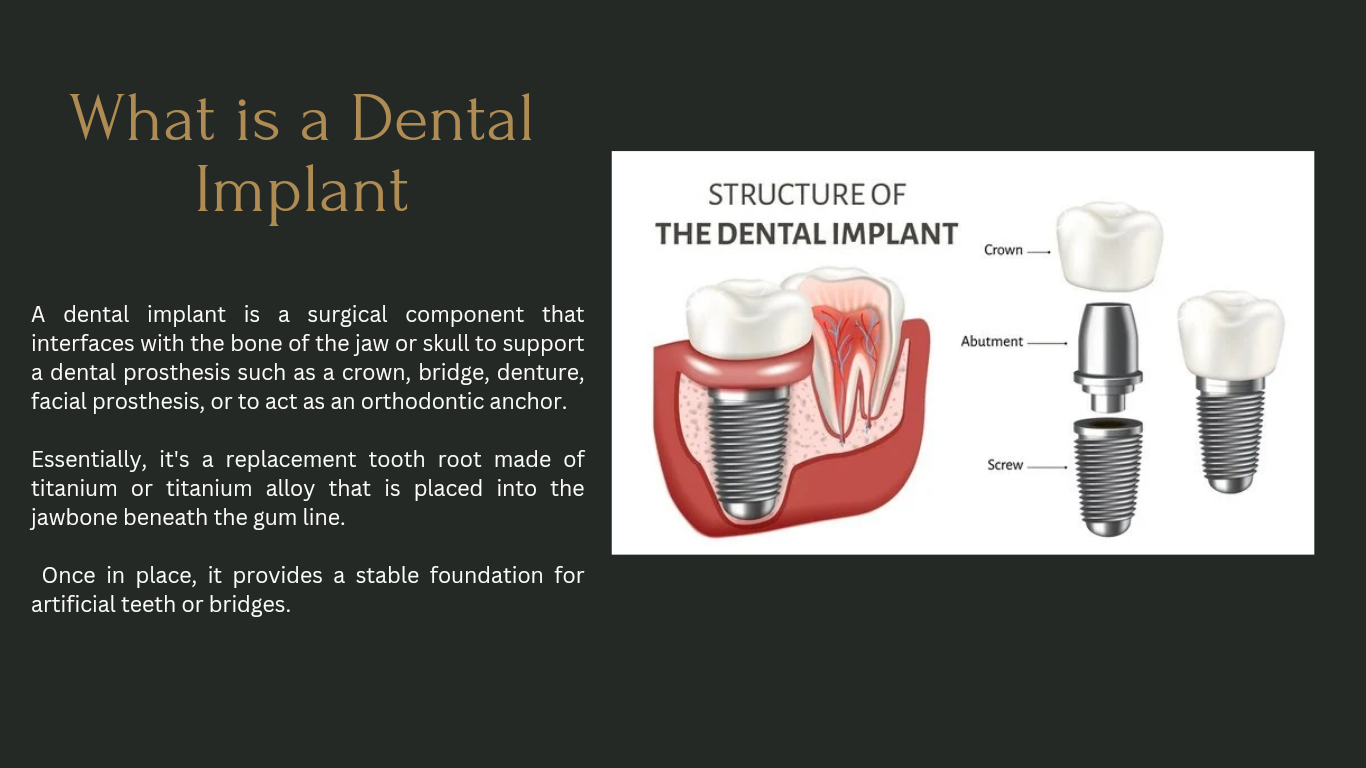
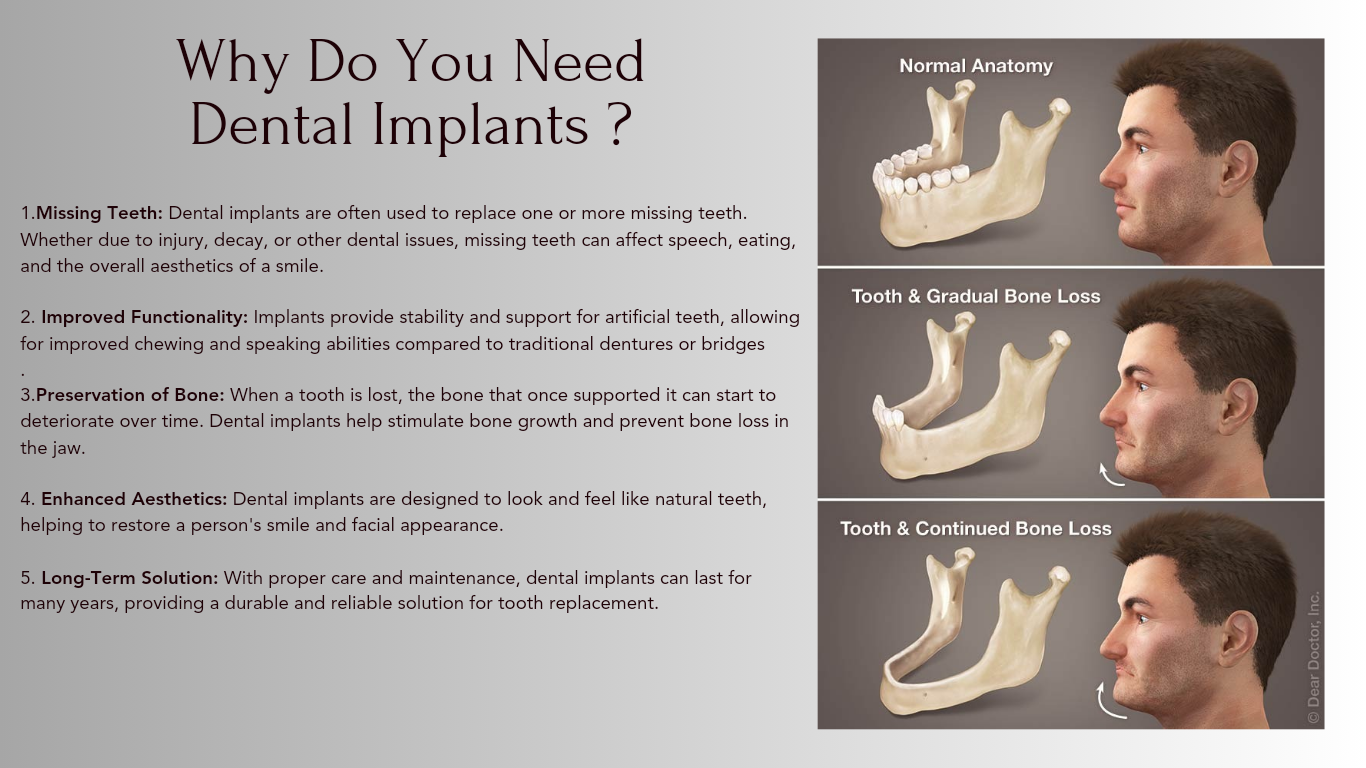
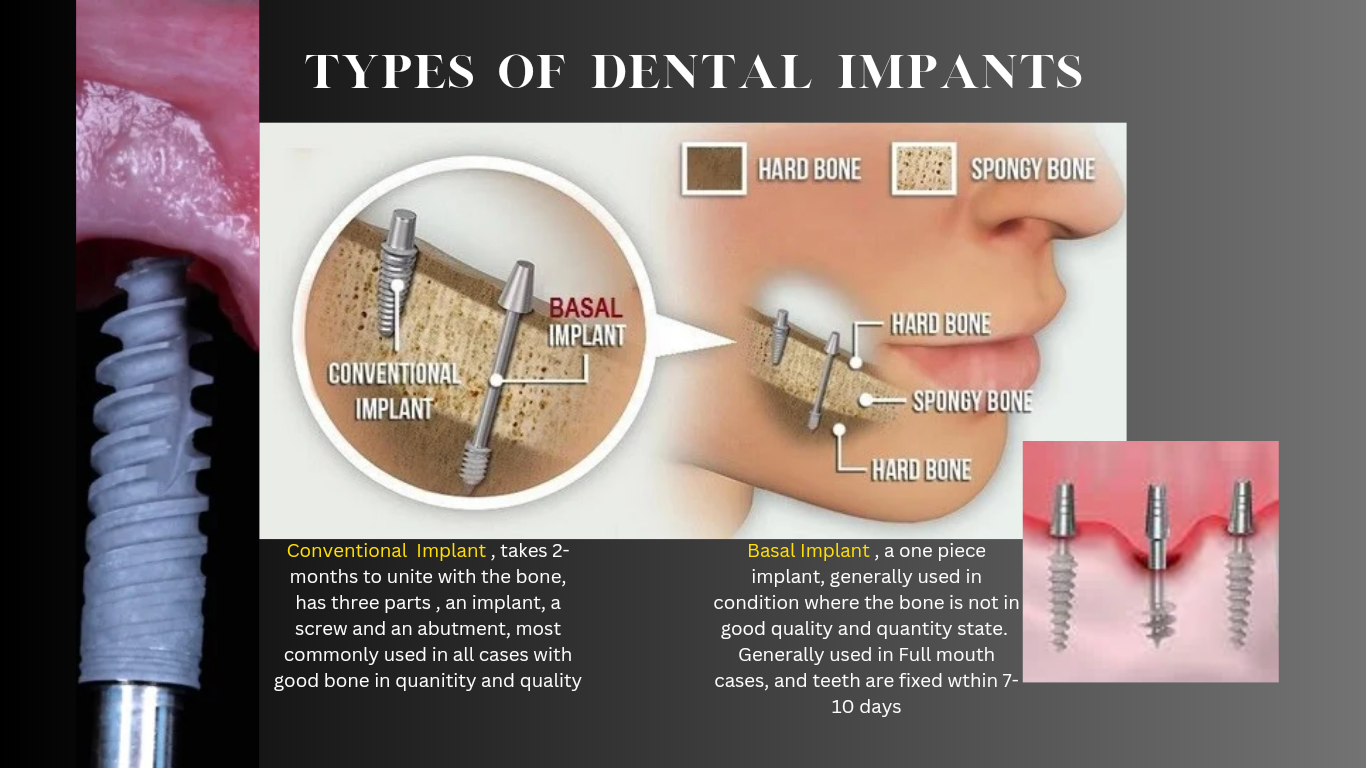
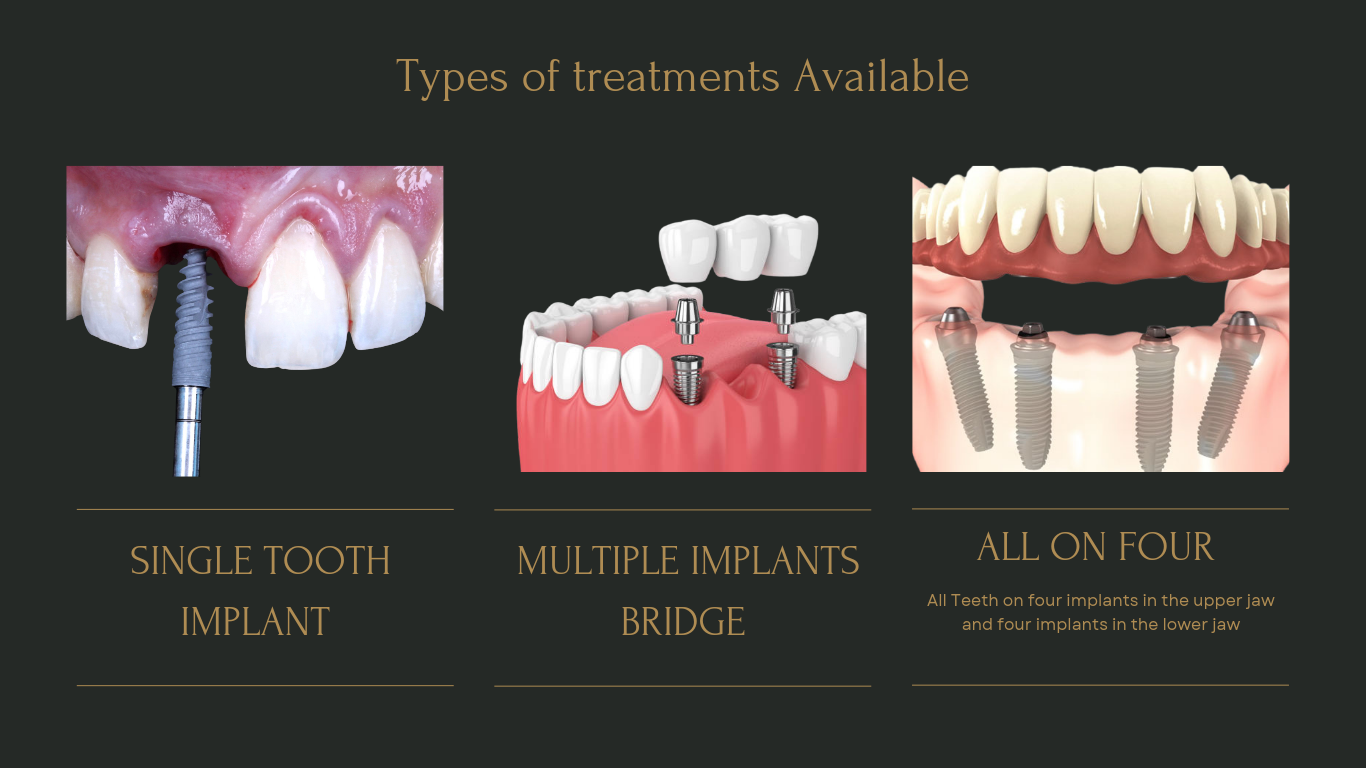
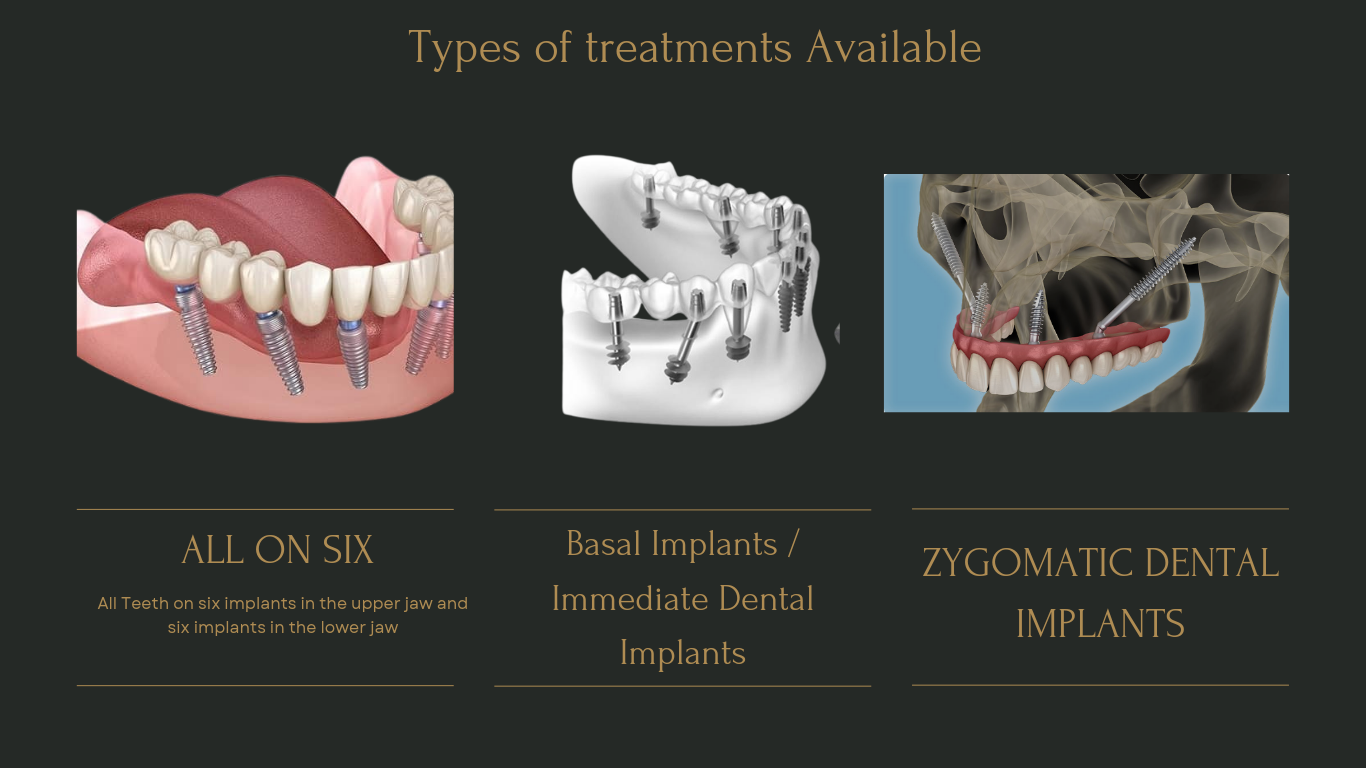
Generally, Individuals with good oral health and sufficient bone density in their jaw are good candidates for dental implants. However, each case is unique, so it's best to consult with a dentist or oral surgeon to determine eligibility.
With proper care and maintenance, dental implants can last a lifetime. However, factors such as oral hygiene practices, overall health, and lifestyle habits can influence their longevity.
The dental implant procedure is typically performed under local anesthesia, so patients should not experience pain during the surgery. Some discomfort and swelling may occur after the procedure, but it can usually be managed with over-the-counter pain medications.
The recovery time can vary depending on the individual and the complexity of the procedure. Generally, it takes several months for the implant to fuse with the jawbone in a process called osseointegration. During this time, patients may be advised to stick to a soft diet and avoid strenuous activities.
Dental implants can be more expensive than other tooth replacement options upfront, but they are considered a long-term investment in oral health. The cost can vary depending on factors such as the number of implants needed, any additional procedures required, and the location of the dental practice.
Like any surgical procedure, there are potential risks and complications associated with dental implants, such as infection, nerve damage, or implant failure. However, these occurrences are rare, especially when the procedure is performed by a skilled and experienced dental professional.
Yes, dental implants can be used to replace a single missing tooth, multiple missing teeth, reven an entire arch of teeth. Depending on the patient's specific needs, different implant-supported prosthetic options, such as implant-supported bridges or dentures, may be recommended.
Caring for dental implants is similar to caring for natural teeth. This includes practicing good oral hygiene habits such as brushing twice a day, flossing daily, and attending regular dental check-ups. Additionally, avoiding habits like smoking and excessive alcohol consumption can help maintain the longevity of dental implants.
Dental Implants are designed to function like natural teeth, so they should not significantly impact your ability to eat or speak. In fact, many patients find that dental implants provide improved stability and chewing ability compared to traditional removable dentures.





